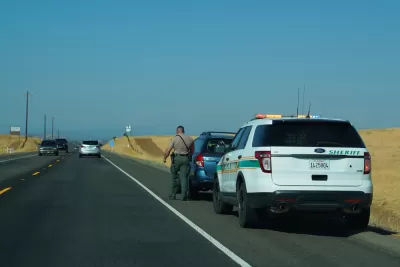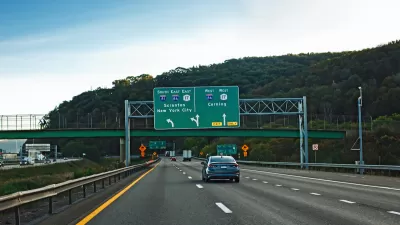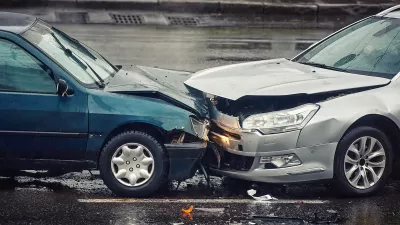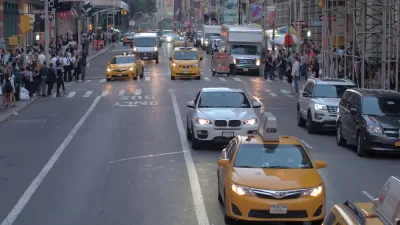A comprehensive study using data from 33 states shows no significant correlation between police stops and reduced crash rates.

Kea Wilson reports on an "explosive new study" that debunks the idea that more frequent traffic stops lead to fewer car crashes. An analysis of over 150 million traffic stops in 33 states "showed that, in the aggregate, there was no significant correlation between high rates of police stops per mile and a low crash rate per mile, or between a high crash rate and a low policing rate."
"Too often, people defend current police traffic practices based on supposed ‘evidence’ of effectiveness, but these are often small-scale analyses that do not show lasting effect of improved traffic safety," said Leah Shahum, founder and director of the Vision Zero Network. "This new study exposes those shortcomings and looks at national-scale data to determine that state traffic-patrol stops are not effective in improving traffic safety."
Because "Black drivers are 63 percent more likely to be stopped in traffic than white drivers, even though they drive 16 percent less" and are "also three times more likely to be killed in such an encounter," advocates say "we must invest in other proven strategies that don’t potentially endanger people of color" to curb traffic deaths. The study's authors conclude that "directing scarce resources to effective strategies such as rural and urban infrastructural changes, motor-vehicle modifications with advanced lifesaving technology, community-based safety initiatives, improved access to health care, or prioritizing trauma system and improved trauma care is imperative."
FULL STORY: STUDY: Police Stops Don’t Stop Car Crashes

Planetizen Federal Action Tracker
A weekly monitor of how Trump’s orders and actions are impacting planners and planning in America.

Chicago’s Ghost Rails
Just beneath the surface of the modern city lie the remnants of its expansive early 20th-century streetcar system.

San Antonio and Austin are Fusing Into one Massive Megaregion
The region spanning the two central Texas cities is growing fast, posing challenges for local infrastructure and water supplies.

Since Zion's Shuttles Went Electric “The Smog is Gone”
Visitors to Zion National Park can enjoy the canyon via the nation’s first fully electric park shuttle system.

Trump Distributing DOT Safety Funds at 1/10 Rate of Biden
Funds for Safe Streets and other transportation safety and equity programs are being held up by administrative reviews and conflicts with the Trump administration’s priorities.

German Cities Subsidize Taxis for Women Amid Wave of Violence
Free or low-cost taxi rides can help women navigate cities more safely, but critics say the programs don't address the root causes of violence against women.
Urban Design for Planners 1: Software Tools
This six-course series explores essential urban design concepts using open source software and equips planners with the tools they need to participate fully in the urban design process.
Planning for Universal Design
Learn the tools for implementing Universal Design in planning regulations.
planning NEXT
Appalachian Highlands Housing Partners
Mpact (founded as Rail~Volution)
City of Camden Redevelopment Agency
City of Astoria
City of Portland
City of Laramie





























